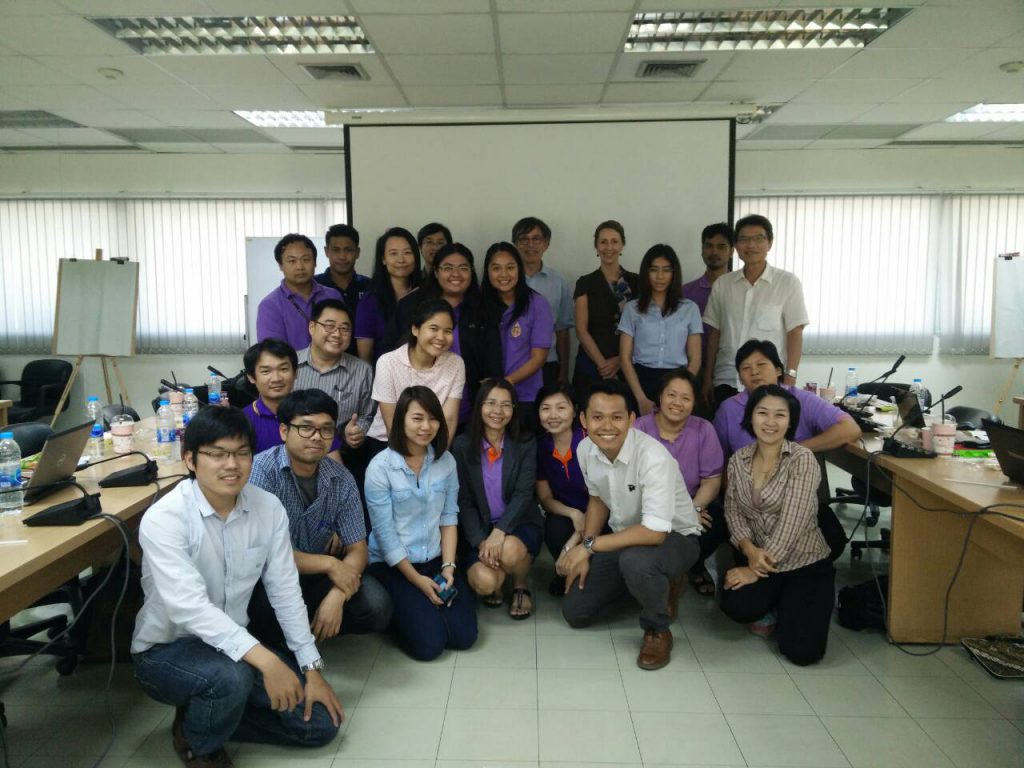Objectives of the training
1) To present and disseminate a final result of the Energy Efficiency Indicator (EEI) development (Study Phase 2) to DEDE and EPPO who are going to continue the works on the EEI development in Thailand;
2) To present and disseminate the methodology of the study to the DEDE and EPPO;
Energy Data Analysis in Thailand Phase 2: Energy Efficiency Indicator Development
The EEDP is formulated with a target to reduce energy intensity-EI (energy consumption/GDP) by 25% in 2030, compared with that in 2010, or equivalent to the reduction of final energy consumption by 23.5% in 2030 or 38,200 thousand tons of crude oil equivalents (ktoe). In order to be able to set baselines for newly implemented energy efficiency policy, as well as to monitor and evaluate new policies, sufficient and accessible energy data are crucial.
In order to understand the development of the Energy Intensity (EI) in Thailand – the main objective of the EEDP being a reduction of 25% of Thailand’s EI – it is crucial to understand the contribution of different sectors and sub-sectors to Thailand’s EI. The sectoral and sub-sectoral influence to Thailand’s EI can be measured by monitoring the sectoral and sub-sectoral energy intensities or, in other words, their Energy Efficiency Indicators (EEI).
On the basis of discussions about data availability and accessibility, one of the tasks that had been carried out during April-September 2013 in the TGP-EEDP project was to analyze the existing Energy Data in Thailand. The results of the Phase 1 study were discussed in the kick-off meeting held in Feb 2014. As a follow-up of the Energy Data Analysis Phase 1 study, the TGP-EEDP project has initiated a Phase 2 project in order to implement some of the recommendations of Phase 1. Since phase 1 concluded that there is good energy and economic data availability in Thailand, the main aim of phase 2 is to make a start with developing Energy Efficiency Indicators for the industrial, commercial building and residential building sector as well as the transport sector in Thailand.
Main Objective of the Study (Phase 2)
To develop Energy Efficiency Indicator (EEI), presented in four databases, for industrial and building sub-sectors (commercial buildings and residential buildings), as well as transport sector by using the already existing energy and economic data in Thailand.
Scopes of the Study (Phase 2)
The work for the Thai consultant and the international consultant will contain the following elements:
1) To review the results of phase 1 and to come to common agreement about approach of phase 2.
2) To collect energy data, economic and physical data for industrial and commercial and residential sectors from 1982 (or as early as possible) to now and compile the data in a (spread sheet) database.
3) To organize workshop (with external participants) to present the interim report.
4) To discuss and implement calculation formulas that converts the energy, physical and economic data into the relevant Energy Efficiency Indicators.
5) To guide the stakeholder on how to possibly use the EEI database in the annual energy reporting and policy making.
6) To organize workshop (with external participants) to present the final report.
Bring together the findings of Energy Data Management project Phase 2 in a concise report with conclusions on how to make use of the EEI in energy efficiency policy making and recommendations of how to continue and expand the EEI for Thailand in future.
